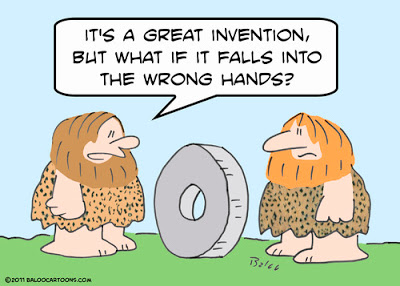Read also: How to Spot Copyright Infringement
-
The making, using, offering for sale, selling, or importing a patented product or a product obtained directly or indirectly from a patented process, or the use of a patented process without the authorization of the patentee constitutes patent infringement.
-
Literal Infringement and Doctrine of Equivalents are the two tests used by Courts to determine whether there is Patent Infringement.
-
Anyone who actively induces the infringement of a patent may be held liable as contributory infringer.
Any technical solution of a problem in any field of human activity which is new, involves an inventive step and is industrially applicable shall be patentable. It may be, or may relate to, a product, or process, or an improvement of any of the foregoing.
Patents provide incentives to individuals by recognizing their creativity and offering the possibility of material reward for their marketable inventions. These incentives encourage innovation, which in turn enhances the quality of human life.
Patents are intellectual property rights that must be protected. Any person who infringes on these rights will be liable for damages.
Republic Act No. 8293 provides that:
The making, using, offering for sale, selling, or importing a patented product or a product obtained directly or indirectly from a patented process, or the use of a patented process without the authorization of the patentee constitutes patent infringement.
The following are the tests used to determine whether there is Patent Infringement:
1. Literal Infringement
To determine whether the particular item falls within the literal meaning of the patent claims, the Court must compare the claims of the patent and the accused product within the overall context of the claims and specifications, to determine whether there is exactly identity of all material elements.
2. Doctrine of Equivalents
According to the doctrine of equivalents, an infringement also occurs when a device appropriates a prior invention by incorporating its innovative concept and, despite some modification and change, performs substantially the same function in substantially the same way to achieve substantially the same result.
Any patentee, or anyone possessing any right, title or interest in and to the patented invention, whose rights have been infringed, may bring a civil action before a court, to recover from the infringer such damages sustained thereby, plus attorney’s fees and other expenses of litigation, and to secure an injunction for the protection of his rights.
If the damages are inadequate or cannot be readily ascertained with reasonable certainty, the court may award by way of damages a sum equivalent to reasonable royalty. Further, the court may, according to the circumstances of the case, award damages in a sum above the amount found as actual damages sustained. The award however must not exceed three (3) times the amount of such actual damages.
Also, anyone who actively induces the infringement of a patent or provides the infringer with a component of a patented product shall be liable as a contributory infringer and shall be jointly and severally liable with the infringer.
Alburo Alburo and Associates Law Offices specializes in business law and labor law consulting. For inquiries, you may reach us at info@alburolaw.com, or dial us at (02)7745-4391/0917-5772207.
All rights reserved.
SUBSCRIBE NOW FOR MORE LEGAL UPDATES!
[email-subscribers-form id=”4″]



